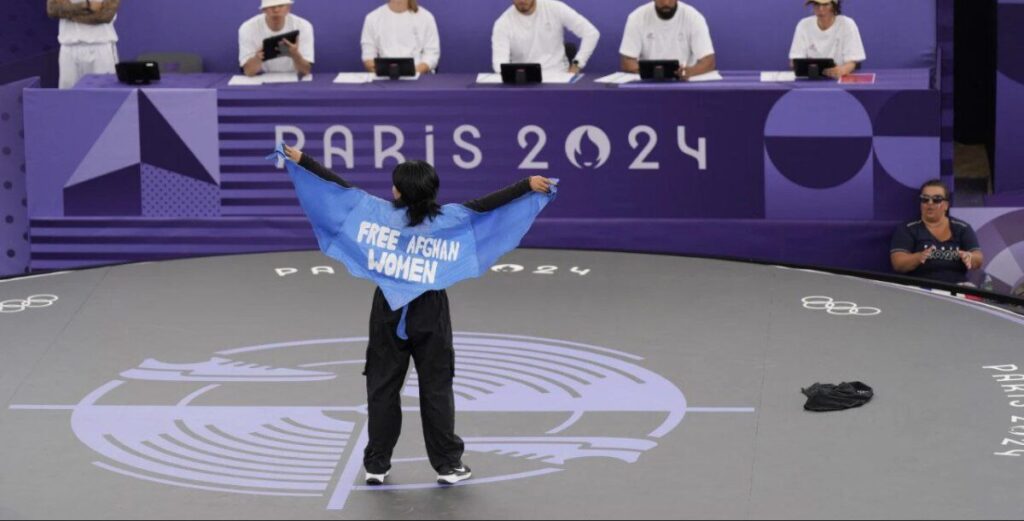The disqualification of Manizha Talash, a female Afghan breakdancer, from the 2024 Paris Olympics has drawn widespread condemnation from Afghan women and activists, who accuse the decision of silencing the voices of Afghan women.
Talash, who competed under the Refugee and Migrant Team, was removed from the competition after displaying a cape with the slogan “Free Afghan Women,” according to a statement from the World DanceSport Federation. The federation cited rules banning political statements on the field of play and podiums at the Olympics as the basis for her disqualification.
Talash, 21, had previously described her participation in the Olympics as a powerful statement against the Taliban’s oppressive restrictions on women and girls in Afghanistan. “I’m here because I want to reach my dream. Not because I’m scared,” she told the Associated Press before her competition.

Originally from Afghanistan, where the Taliban’s return to power has led to severe restrictions on women’s rights, Talash fled to Spain after the group took control of the country. Her decision to highlight the plight of Afghan women through her performance, rather than solely focusing on winning, has been lauded by many as a courageous act of defiance.
On the day of the competition, Talash unfurled the slogan before her first duel against India Sardjoe of the Netherlands. Her actions, which she described as her greatest achievement, have since sparked a debate over the intersection of sports and political expression.
Women’s rights activists and Afghan citizens have expressed their support for Talash, arguing that her message was not political, but rather a human rights plea. “Instead of the 2024 Olympics being an opportunity to advocate for the voice of women, it has silenced the voices of Afghan women,” said Maryam Maroof Arwin, a prominent Afghan women’s rights activist. “Monezha Talash’s actions are not only commendable but also inspiring for other Afghan athletes.”
A Kabul resident echoed this sentiment, saying, “We are happy that Monezha, despite being outside Afghanistan, defends the rights of Afghan women. We ask our [Taliban] government to grant us—the women—the right and freedom to work and study.”
Since the Taliban regained control of Afghanistan three years ago, they have systematically stripped women and girls of their basic rights, including access to education and employment. Protests against these restrictions continue to take place, often met with violent repression.
Talash, who began practicing breakdancing in 2020, expressed her deep connection to the sport in an earlier interview. “I came to this field because I had a great passion for it and wanted to be a good role model for Afghanistan,” she said in February 2021.
Her disqualification from the Olympics has not only underscored the ongoing struggle for women’s rights in Afghanistan but has also sparked a broader conversation about the role of activism within the global sports arena.




